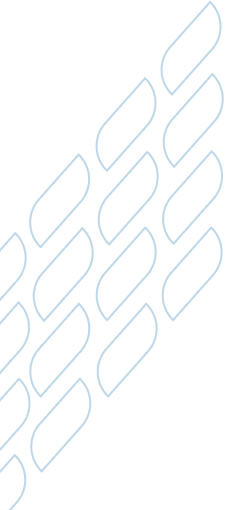
Discover why adaptive, personalized learning is essential for ensuring both new and experienced Epic users get the training they need to optimize performance and patient care.
For healthcare leaders seeking to boost efficiency and satisfaction among their clinicians, EHR onboarding presents a tremendous opportunity for improvement. Personalization has become the key to enhancing the learning experience, addressing the specific needs of individual learners, and improving their proficiency. In the recent Becker’s webinar, Kelley Williamson of UCHealth shared how allowing physicians to choose their own onboarding journey improved physician satisfaction and provided UCHealth with the data they needed to make informed decisions.
As Anne Hyland, Senior Director of Healthcare Client Solutions and EHR Program Director at Amplifire, explained during the webinar, “Personalized EHR Onboarding: Data-Driven Strategies for Efficiency and Satisfaction”, healthcare training is inherently time-consuming, resource-intensive, and costly. Trainers often face the challenge of balancing the need to cover all the necessary material l while reducing the time it takes to do so to facilitate training efficiency. Amplifire’s approach digs deeper into learning personalization for EHR onboarding, revealing some unexpected truths about even the most experienced EHR users.
Here are six key takeaways from this insightful webinar to consider when evaluating the efficacy of your EHR training program:
1. One-size-fits-all Training Falls Short of Addressing Individual Needs
Healthcare organizations have long relied on standardized training methods, but one-size-fits-all approaches often fail to meet the unique needs of diverse learners. In large health systems, the user base consists of individuals with varied experiences, roles, and specialties. A standard training program cannot cater to the specific knowledge gaps and responsibilities of each individual.
Take UCHealth, for example. Their providers—one of the most expensive and valuable resources within the system—were vocally dissatisfied with their previous “click-through-for-credit” learning system and lengthy, required in-person session. This approach left learners disengaged and underprepared to navigate the complexities of their EHR. Despite having completed their training, errors persisted in crucial tasks like admissions, discharges, and transfers. These mistakes ultimately impacted the overall efficiency of the health system and patient care.
The lesson here is clear: generic training methods don’t account for the nuances of individual workflows or knowledge gaps. A more tailored, data-driven approach is required to ensure that clinicians not only complete the training but truly master the system.
2. In-Application and At-the-Elbow Training Are Not Enough for True Mastery
Many healthcare organizations employ at-the-elbow support and in-application guides to assist clinicians during the onboarding process. While these tools provide assistance in real-time, they fall short when it comes to deeper, personalized learning. These forms of support may address immediate questions or provide orientation but lack the scientific rigor needed to ensure long-term retention and mastery of the EHR system.
Amplifire’s approach goes beyond this, using adaptive learning methodologies grounded in cognitive science. Brain science-based learning techniques focus on improving retention through strategies such as spaced repetition, confidence-based assessments, and active recall. These methods have been shown to help learners retain knowledge longer, learn faster, and apply information more accurately.
Adaptive learning personalizes the training process to each user’s unique needs, ensuring that they not only complete online training but also remember how to accurately navigate the EHR when they are back on the floor.
3. Experienced Clinicians May Require More Training Than Expected
One of the most surprising findings from UCHealth’s EHR training journey was that Epic-experienced clinicians exhibited just as much “confidently held misinformation®” (CHM®) as new users that just completed other online EHR learning. CHM® occurs when users are confident in their knowledge but are, in fact, mistaken. This is particularly dangerous in clinical environments where confidence can lead to incorrect actions that impact patient outcomes.
At UCHealth, Amplifire analyzed data from around 1,800 learners and uncovered nearly 18,000 instances of CHM® across both experienced and novice users, and the CHM® for those that had just complete other online training on the exact content only had a reduced level of CHM® by a couple of percentage points. This indicates that prior exposure to the EHR system does not always correlate to efficient and accurate EHR use, nor just traditional online learning. Even seasoned users who have been working with the EHR for years may develop inaccurate shortcuts, gain unreliable tribal knowledge, or rely on outdated processes. Based on the data, even those that had just spent time learning the EHR displayed only 55% confidently correct knowledge.
Matt Hays, Amplifire’s VP of Research and Analytics, stressed the significance of this finding: “Regardless of their previous experience or recent training, learners still had almost 18,000 things that would have been mistakes had they not been corrected.” This demonstrates the critical need for personalized training that identifies and rectifies these hidden knowledge gaps.
4. Amplifire Uniquely Identifies and Corrects Confidently Held Misinformation®
Amplifire stands out in its ability to detect CHM® at an individual level and correct it effectively, making it a vital tool for personalized learning. The platform uses an algorithm based on cognitive science research to identify instances where learners are confident in incorrect information. This is a game-changer for healthcare organizations, where traditional training platforms often overlook these hidden areas of misunderstanding.
The power of Amplifire lies in its capacity to uncover these dangerous gaps and then correct them in a way that ensures long-term retention. The algorithm does this by leveraging cognitive triggers like delayed feedback, priming, spacing, and repetition among others.
As Matt Hays noted, “The Amplifire algorithm leverages research in cognitive science, especially phenomena that run counter to how it feels like teaching works best or how it feels like learning is most effective.” In other words, the system uses evidence-based methods that may not always feel intuitive but are proven to correct misinformation and help people learn faster and remember longer.
5. Personalized Learning Saves Time While Enhancing Effectiveness
A common concern about personalized learning is that it might be more time-consuming than traditional methods. However, Amplifire’s adaptive learning platform actually accelerates the training process. By focusing only on the material that learners don’t already know or are unsure about, the platform allows them to bypass unnecessary content and spend their time more efficiently.
This efficiency translates into shorter training times without sacrificing quality. Clinicians are able to achieve mastery faster because they aren’t wasting time on concepts they’ve already learned or trudging through generalized content. For healthcare organizations, this means less time spent in training and more time for clinicians to focus on patient care and billable hours.
6. Satisfied Clinicians Lead to Improved Patient Care and Operational Efficiency
The ultimate goal of personalized EHR onboarding is to make clinicians more efficient in their use of the EHR system. When clinicians can quickly and accurately navigate the system, they have more time to dedicate to patient care. This, in turn, contributes to better patient outcomes and increased clinician satisfaction. Based on data from KLAS Arch Collaborative, the initial EHR onboarding experience directly correlates to clinician satisfaction metrics, giving health systems a key opportunity to make a difference for their providers’ wellbeing.
Before implementing Amplifire, 71% of UCHealth clinicians reported negative experiences with one-size-fits-all training. With personalized learning, however, their training was streamlined, focused, and respectful of their existing knowledge and expertise. Kelley Williamson shared how providers described their improved learning experience, “They love to be able to say, ‘Let me take my time or let me speed up. And I don’t have to sit in the classroom where the instructor is going through step by step.’ And that’s a really huge satisfier.” And this shift not only improved their satisfaction with the training process but also had a trickle-down effect, improving overall healthcare delivery.
For healthcare systems that value clinician time, well-being, and patient care, personalized learning through Amplifire is an essential tool for achieving both operational efficiency and high-quality care.
UCHealth’s adoption of Amplifire’s adaptive learning platform illustrates the profound impact of personalized, data-driven training on clinician performance and satisfaction. By addressing confidently held misinformation, speeding up the learning process, and tailoring the experience to individual needs, Amplifire has helped UCHealth improve operational efficiency and boost clinician satisfaction. To learn more about how UCHealth transformed their EHR onboarding process with Amplifire, access the webinar recording and see how personalized learning can revolutionize your organization’s approach to training.







